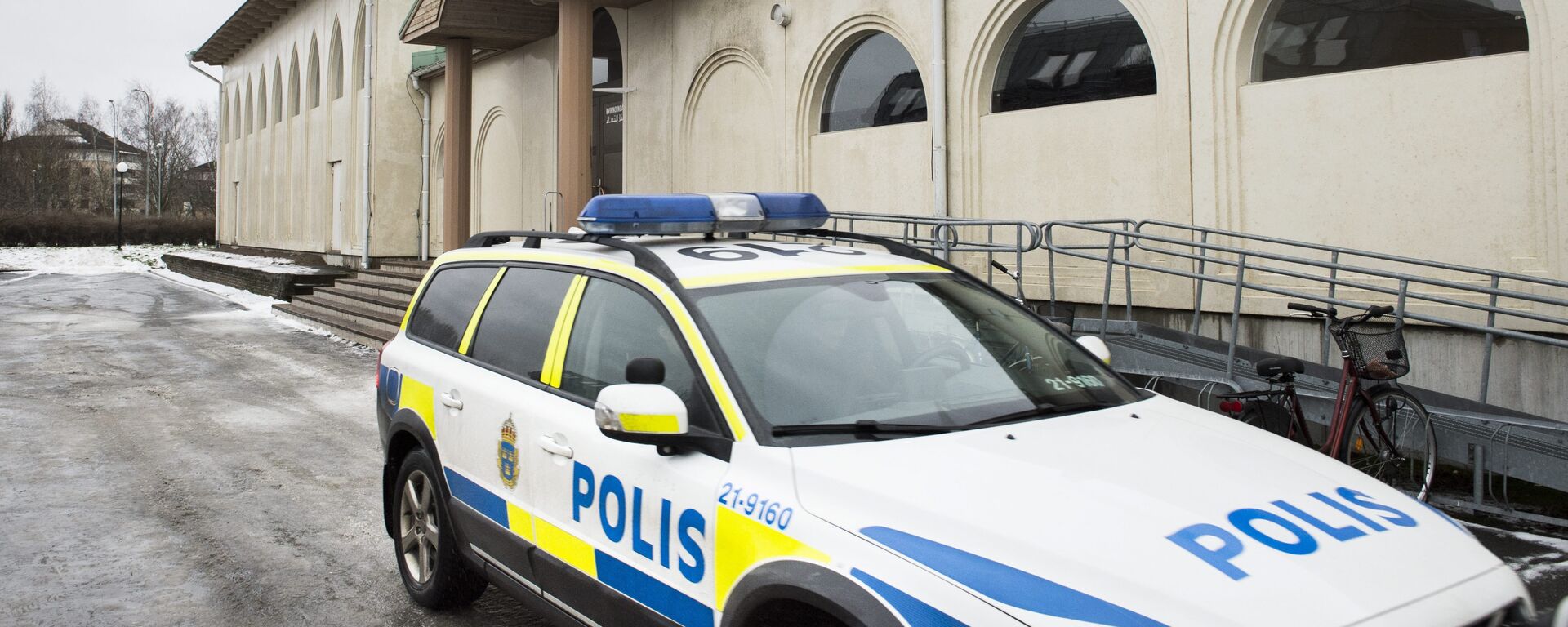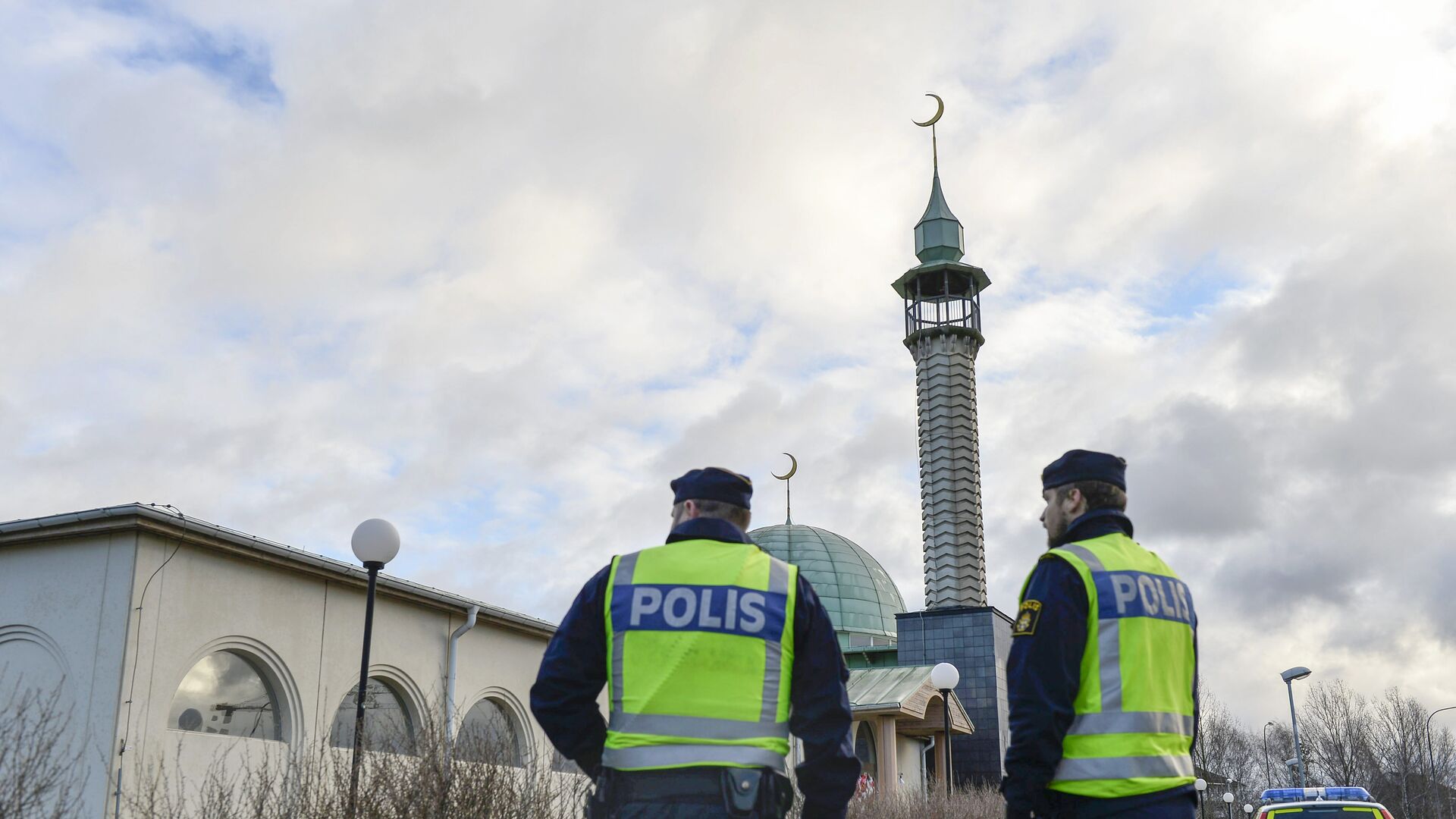https://sputnikglobe.com/20220530/sweden-wants-to-stop-foreign-financing-of-religious-communities-1095867993.html
Sweden Wants to Stop Foreign Financing of Religious Communities
Sweden Wants to Stop Foreign Financing of Religious Communities
Sputnik International
The Nordic country's authorities are worried that public funding, including from abroad, could exacerbate the growing problem of radicalism, as numerous... 30.05.2022, Sputnik International
2022-05-30T05:25+0000
2022-05-30T05:25+0000
2023-02-14T14:07+0000
sweden
islam
hate speech
mosque
funding
newsfeed
europe
religion
https://cdn1.img.sputnikglobe.com/img/105129/91/1051299163_0:0:4928:2773_1920x0_80_0_0_7667e5afcd5710fd28344f8644d18558.jpg
The Swedish government wants to put an end to foreign funding of Swedish religious communities. The hope is that the ban would prevent attempts at radicalisation.According to the ministers, there have been “significant financial transfers” to various congregations in Sweden.“There are signs that foreign interests are trying to influence the interpretation of religion, sometimes in an extreme and violence-glorifying direction. This is something we take seriously,” they said in a statement.While both ministers named “conservative forces in the Middle East, the US and Eastern Europe” as examples of unwanted and potentially dangerous influence, they named instigating violence as the worst risk and cited “individual mosques identified as places of radicalisation”.Gustafsdotter and Ygeman emphasised that “a lot of work” has been done in recent years to address the problem; the Centre Against Violent Extremism (CVE) has been established, anti-terrorism laws have been tightened and prevention work has been boosted.Earlier this month, the government announced a tightening of the so-called democratic conditions for religious communities that receive public support. From 2023 onwards, no communities that discriminate or partake in or encourage violence will receive state funding.A previous report by the Swedish Security Police (Säpo) estimated the number of extremists in the country at about 3,000, of which 2,000, an overwhelming majority, are radical Islamists. The report also estimated that the country's domestic extremist environment has grown by leaps and bounds, from hundreds to thousands, fuelled by global links ranging from counselling to financing.Over the recent decade, Sweden emerged as one of Europe's largest providers of jihadists per capita, with some 300 Swedish nationals leaving the country to join the terrorists' cause in the Middle East. In numerous cases, the role of mosques and Islamic centres in the process of radicalisation and brainwashing has been identified. Separately, numerous mosques across the country have also been accused of providing a platform to “hate preachers”.
https://sputnikglobe.com/20210923/former-islamist-preacher-there-is-a-salafist-in-every-swedish-mosque-1089322794.html
sweden
Sputnik International
feedback@sputniknews.com
+74956456601
MIA „Rossiya Segodnya“
2022
News
en_EN
Sputnik International
feedback@sputniknews.com
+74956456601
MIA „Rossiya Segodnya“
Sputnik International
feedback@sputniknews.com
+74956456601
MIA „Rossiya Segodnya“
sweden, islam, hate speech, mosque, funding, newsfeed, europe, religion
sweden, islam, hate speech, mosque, funding, newsfeed, europe, religion
Sweden Wants to Stop Foreign Financing of Religious Communities
05:25 GMT 30.05.2022 (Updated: 14:07 GMT 14.02.2023) The Nordic country's authorities are worried that public funding, including from abroad, could exacerbate the growing problem of radicalism, as numerous extremists have previously been identified has having become radicalised within their religious communities.
The Swedish government wants to put an end to foreign funding of Swedish religious communities. The hope is that the ban would prevent attempts at radicalisation.
“Violent extremism and anti-democratic attitudes have no place in Sweden,” Culture Minister Jeanette Gustafsdotter and Immigration Minister Anders Ygeman claimed in an opinion piece in Göteborgs-posten, envisaging a policy shift. “When we give countries, organisations and foundations that don't share our democratic values a free pass to pay for the construction of mosques or churches, we know that it comes with expectations. <...> This is actually pretty obvious – nothing is free. With financing comes demands for consideration,” they added.
According to the ministers, there have been “significant financial transfers” to various congregations in Sweden.
“There are signs that foreign interests are trying to influence the interpretation of religion, sometimes in an extreme and violence-glorifying direction. This is something we take seriously,” they said in a statement.
While both ministers named “conservative forces in the Middle East, the US and Eastern Europe” as examples of unwanted and potentially dangerous influence, they named instigating violence as the worst risk and cited “individual mosques identified as places of radicalisation”.
Gustafsdotter and Ygeman emphasised that “a lot of work” has been done in recent years to address the problem; the Centre Against Violent Extremism (CVE) has been established, anti-terrorism laws have been tightened and prevention work has been boosted.
Earlier this month, the government announced a tightening of the so-called democratic conditions for religious communities that receive public support. From 2023 onwards, no communities that discriminate or partake in or encourage violence will receive state funding.

23 September 2021, 06:42 GMT
A previous report by the Swedish Security Police (Säpo) estimated the number of extremists in the country at about 3,000, of which 2,000, an overwhelming majority, are radical Islamists. The report also estimated that the country's domestic extremist environment has grown by leaps and bounds, from hundreds to thousands, fuelled by global links ranging from counselling to financing.
Over the recent decade, Sweden emerged as one of Europe's largest providers of jihadists per capita, with some 300 Swedish nationals leaving the country to join the terrorists' cause in the Middle East. In numerous cases, the role of mosques and Islamic centres in the process of radicalisation and brainwashing has been identified. Separately, numerous mosques across the country have also been accused of providing a platform to “hate preachers”.


